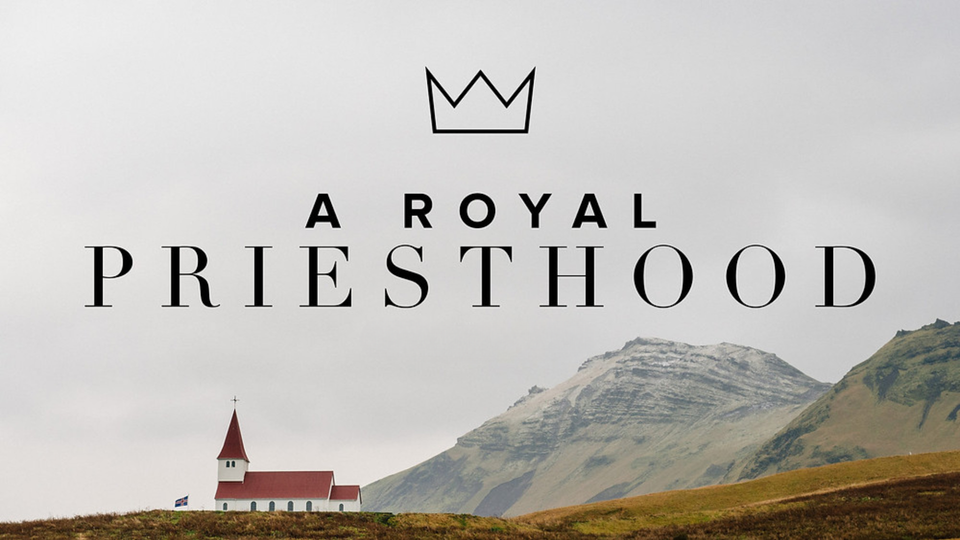Guarding the Priesthood

Numbers 3:5-10
And the Lord spoke to Moses, saying, 6 “Bring the tribe of Levi near, and set them before Aaron the priest, that they may minister to him. 7 They shall keep guard over him and over the whole congregation before the tent of meeting, as they minister at the tabernacle. 8 They shall guard all the furnishings of the tent of meeting, and keep guard over the people of Israel as they minister at the tabernacle. 9 And you shall give the Levites to Aaron and his sons; they are wholly given to him from among the people of Israel. 10 And you shall appoint Aaron and his sons, and they shall guard their priesthood. But if any outsider comes near, he shall be put to death.”
Yahweh spoke to Moses as the numbers of men were counted from each of the twelve tribes. Each tribe was specifically situated in formation around the Tabernacle where the Presence of the Lord was manifest. Aaron was the High Priest, appointed by Yahweh, to minister to Him in the Tabernacle. Aaron and his sons were “wholly given” to Aaron to fulfill their priestly duties. Then Yahweh makes a statement that demands our attention: “they shall guard their priesthood”.
The Hebrew word for priesthood is khunnah found fourteen times in the Old Testament. Here are two references to help frame our understanding of the importance of the Levitical priesthood:
“… And their anointing shall admit them to a perpetual priesthood throughout their generations.” (Exodus 40:15)
“…And you and your sons with you shall guard your priesthood for all that concerns the altar and that is within the veil; and you shall serve. I give your priesthood as a gift…” (Numbers 18:7)
We learn from Scripture that eventually, the Levites failed to guard their priesthood. As much as Ezra and Nehemiah tried to purge the unclean from the priesthood, it wasn’t enough.
Hebrews 7:11-12 helps us understand the need for a pure priesthood:
“Now if perfection had been attainable through the Levitical priesthood (for under it the people received the law), what further need would there have been for another priest to rise after the order of Melchizedek, rather than one named after the order of Aaron? For when there is a change in the priesthood, there is necessarily a change in the law as well.”
Hebrews 7:14-24 answers the question we may have about Jesus’ qualification for the priesthood:
“For it is evident that our Lord [Jesus] was descended from Judah, and in connection with that tribe Moses said nothing about priests… but he [Jesus] holds his priesthood permanently because he continues forever.”
The Old Testament model of the priesthood was fulfilled in Jesus as only through him are sinful human beings able to enter the holy presence of God and be accepted as children of God. Whatever priesthood Christians have, they have only in and through Christ, their High Priest.
The New Testament describes believers as the “royal priesthood”, to offer spiritual sacrifices acceptable to God through Jesus Christ” (1 Peter 2:5), “priests to his God and Father (Revelation 1:6); "a kingdom and priests to our God” (Revelation 5:10); “priests of God and of Christ, and they shall reign with him a thousand years” (Revelation 20:6). Such statements as these are reflected in Exodus 19:6: “You shall be my kingdom of priests, my holy nation” (see also Psalm 132:9, 16; Isaiah 61:6).
“The high priesthood of Christ may be defined as his complete dedication and obedience to God, his Father, and unlimited compassion for his fellow human beings.” (1)
The nature of the priesthood can be described as this:
- Direct access to God (Romans 5:2; Ephesians 2:18)
- Offering spiritual sacrifices to God. (Philippians 4:18)
- Declaring the Gospel (1 Peter 2:9,12)
- Worshiping as a local church (1 Timothy 2:1)
As a summary of the priesthood, Walter A. Elwell and Barry J. Beitzel offer this: “In summary, it may be said that priesthood is an activity and function which is best viewed in a collective sense as belonging to the whole body of Christians, though including of necessity the individual Christian life of service.”
I submit that Numbers 5:10 remains as much a command for us today as it was when the original priesthood was formed: “…and they shall guard their priesthood.”
How many of us truly guard our priesthood? We’d like to think we do, but how do our everyday attitudes, activities, discussions, social media posts, etc., resemble those of a holy priesthood whose life is reflected in the nature of the priesthood described above?
Yes, the Old Testament priesthood is fulfilled in Jesus. He is our model and standard-setter as we accept the responsibilities and functions of the holy priesthood as imagers of Christ!
This short study has been personally convicting to me … I must become more like Jesus in accepting and performing the role of a priest unto our God.
(1) Walter A. Elwell and Barry J. Beitzel, “Priesthood,” Baker Encyclopedia of the Bible (Grand Rapids, MI: Baker Book House, 1988), 1754.






Member discussion